In the logistics and transportation industry, the efficiency of your fleet is paramount. One critical component that significantly impacts operational performance is the diesel tank capacity of your trailers. At CarMax Vehicle, we specialize in designing and manufacturing trailers with optimal diesel tank capacities tailored to meet diverse transportation needs. This comprehensive guide delves into the intricacies of trailer diesel tank capacity, providing insights and actionable strategies to enhance your fleet’s efficiency and reliability.
Understanding Trailer Diesel Tank Capacity
Trailer diesel tank capacity refers to the volume of diesel fuel that a trailer’s tank can hold. This capacity directly influences the trailer’s range, fueling frequency, and overall operational efficiency. Properly sizing the diesel tank ensures that your trailer can perform optimally without unnecessary fuel stops, reducing downtime and increasing productivity.
Key Components Influencing Diesel Tank Capacity
- Tank Size and Dimensions: The physical size and shape of the diesel tank determine the maximum capacity. Custom designs can optimize space utilization, especially in specialized trailers.
- Fuel Efficiency: The diesel engine’s fuel efficiency impacts how far your trailer can travel on a given fuel load, influencing the required tank capacity.
- Operational Range: The distance your trailer needs to cover between refueling stations dictates the necessary diesel tank size to avoid frequent stops.
- Weight Considerations: Diesel fuel adds weight to the trailer, affecting payload capacity and overall vehicle performance. Balancing tank capacity with payload requirements is crucial.

Factors Influencing Diesel Tank Capacity in Trailers
Several factors play a pivotal role in determining the optimal diesel tank capacity for trailers:
1. Type of Cargo and Payload Requirements
Different types of cargo may necessitate varying trailer designs and, consequently, different diesel tank capacities. For instance, long-haul trailers transporting heavy machinery might benefit from larger tanks to minimize refueling stops, while local delivery trailers may require smaller, more compact tanks.
2. Route and Geography
The terrain and distance of your typical routes influence fuel consumption patterns. Hilly or mountainous regions may require more fuel, leading to a need for larger tanks to maintain efficiency.
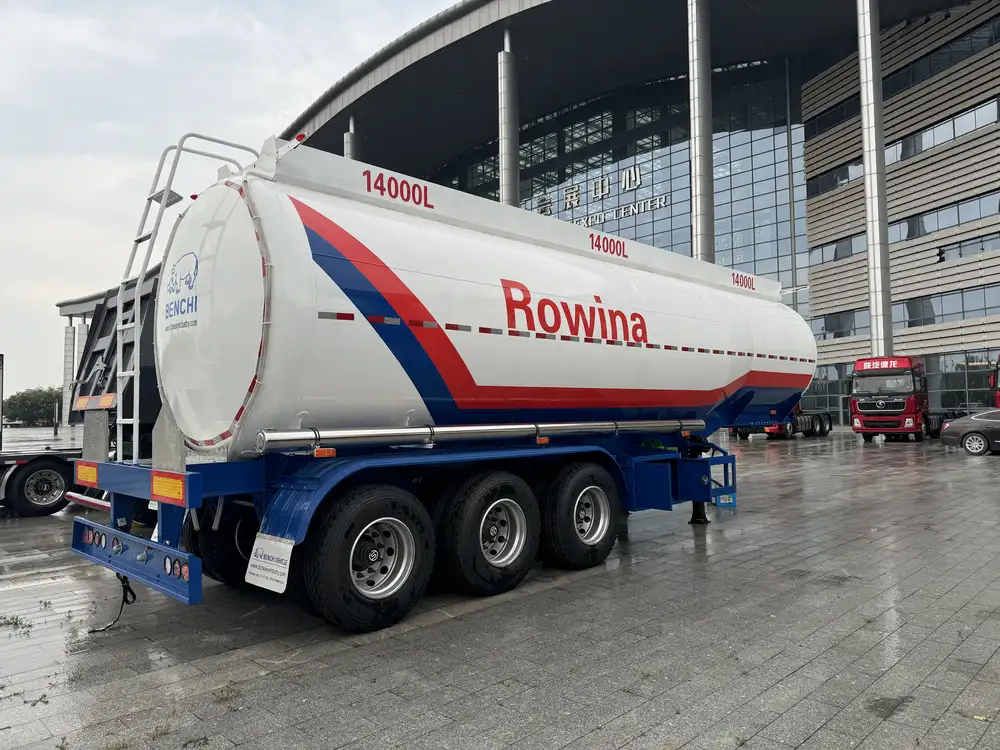
3. Operational Hours and Scheduling
Extended operational hours and tight scheduling may benefit from trailers with larger diesel tanks, reducing the risk of fuel shortages during critical delivery windows.
4. Regulatory Compliance
Local and international regulations may impose limits on fuel tank sizes, especially concerning safety and environmental standards. Ensuring compliance while optimizing capacity is essential for uninterrupted operations.
Calculating Optimal Diesel Tank Capacity for Your Trailer
Determining the right diesel tank capacity involves a systematic approach that considers both operational demands and technical specifications.
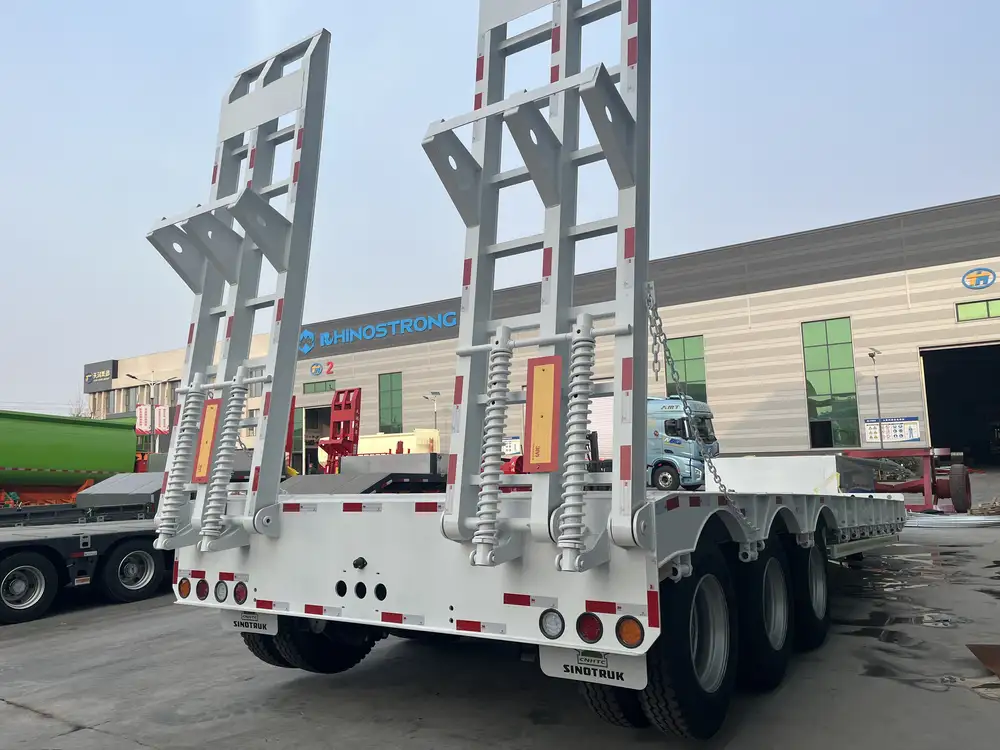
Step-by-Step Calculation Process
| Step | Description |
|---|---|
| 1. Assess Fuel Consumption | Determine the average fuel consumption of your trailer’s engine (liters per hour or miles per gallon). |
| 2. Analyze Route Distances | Calculate the typical distances covered in a single trip, accounting for varied terrains and traffic conditions. |
| 3. Determine Refueling Frequency | Decide how often refueling can be scheduled based on route planning and availability of fuel stations. |
| 4. Factor in Reserve Capacity | Incorporate a buffer (usually 10-20%) to account for unforeseen delays or detours. |
| 5. Finalize Tank Size | Combine the above factors to calculate the total required tank capacity, ensuring it aligns with regulatory standards and payload requirements. |
Example Calculation
Suppose your trailer consumes 5 liters of diesel per hour and operates for 8 hours a day. If the average route distance requires 6 hours of travel, the calculation would be:
- Daily Consumption: 5 liters/hour * 8 hours = 40 liters
- Reserve Capacity (15%): 40 liters * 0.15 = 6 liters
- Total Tank Capacity: 40 liters + 6 liters = 46 liters
Therefore, a diesel tank with a capacity of approximately 50 liters would be appropriate, providing a balance between operational efficiency and compliance.
Comparing Diesel Tank Capacities Across Trailer Types
Different trailer types require varying diesel tank capacities to meet their specific operational demands. Below is a comparative analysis:
| Trailer Type | Typical Diesel Tank Capacity | Use Case |
|---|---|---|
| Flatbed Trailers | 50-100 liters | Transportation of large, heavy machinery |
| Refrigerated Trailers | 70-120 liters | Long-haul refrigerated goods needing extended range |
| Dry Van Trailers | 60-110 liters | General freight with varied delivery routes |
| Tanker Trailers | 150-300 liters | Liquid transport requiring high fuel capacity |
| Step Deck Trailers | 55-105 liters | Hauling oversized loads with extended range needs |
Choosing the appropriate trailer type and diesel tank capacity ensures that your fleet operates efficiently, minimizing downtime and maximizing productivity.

Benefits of Choosing the Right Diesel Tank Capacity
Optimizing diesel tank capacity offers numerous advantages that enhance fleet performance and operational sustainability.
1. Increased Operational Efficiency
Adequate diesel tank capacity reduces the frequency of refueling stops, allowing trailers to complete longer routes without interruptions. This efficiency translates to higher productivity and the ability to meet tight delivery schedules.
2. Cost Savings
Larger diesel tanks can lead to bulk purchasing of fuel, potentially reducing fuel costs. Additionally, minimizing refueling stops decreases labor and time expenses associated with fueling operations.
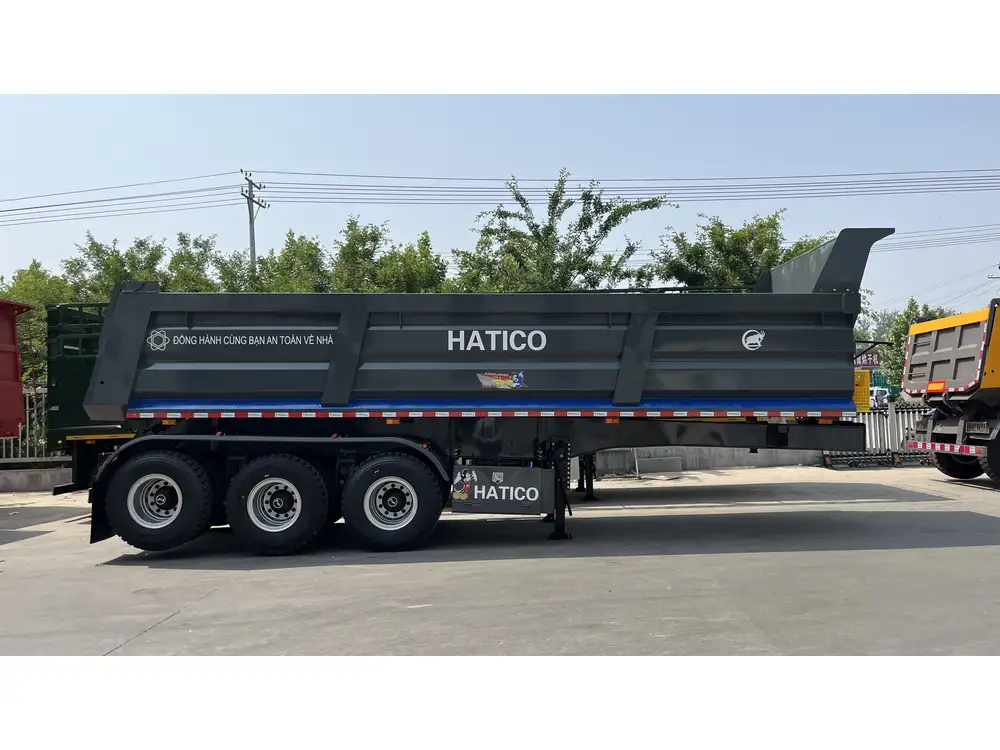
3. Enhanced Reliability
A well-sized diesel tank ensures that trailers are less likely to run out of fuel unexpectedly, promoting reliability and trust with clients through consistent and dependable service.
4. Improved Payload Management
By optimizing diesel tank capacity relative to payload, businesses can maximize the weight carried without exceeding vehicle limitations, ensuring compliance with transportation regulations and safety standards.
How CarMax Vehicle Designs Optimal Diesel Tanks
At CarMax Vehicle, we employ a meticulous design process to create diesel tanks that perfectly match your trailer’s requirements.

Advanced Engineering and Customization
Our team of engineers uses state-of-the-art software and simulation tools to design diesel tanks that optimize space, weight distribution, and fuel capacity. We consider various factors, including:
- Trailer Dimensions: Custom-fitted tanks to utilize available space without compromising cargo capacity.
- Material Selection: High-grade materials that ensure durability, corrosion resistance, and safety.
- Ease of Access: Designing tanks for simple refueling and maintenance, reducing downtime and operational complexity.
Compliance and Safety
We prioritize regulatory compliance and safety in our designs, adhering to international standards and environmental guidelines. Our tanks are equipped with safety features such as:
- Spill Prevention Systems: Minimizing the risk of fuel spills during transport.
- Ventilation Systems: Managing fuel vapors to prevent buildup and ensure environmental safety.
- Secure Mounting: Ensuring tanks remain stable and secure under various operating conditions.
Maintenance Tips for Diesel Tanks on Trailers
Proper maintenance of diesel tanks is essential for ensuring longevity, safety, and optimal performance. Here are key maintenance practices:

1. Regular Inspections
Conduct routine inspections to identify signs of wear, leaks, or corrosion. Early detection of issues prevents costly repairs and environmental hazards.
2. Proper Cleaning
Keep the diesel tank clean from contaminants by scheduling regular cleaning sessions. Use appropriate cleaning agents that do not degrade the tank material.
3. Monitoring Fuel Levels
Use accurate fuel gauges to monitor diesel levels and prevent overfilling, which can lead to spills and tank damage.
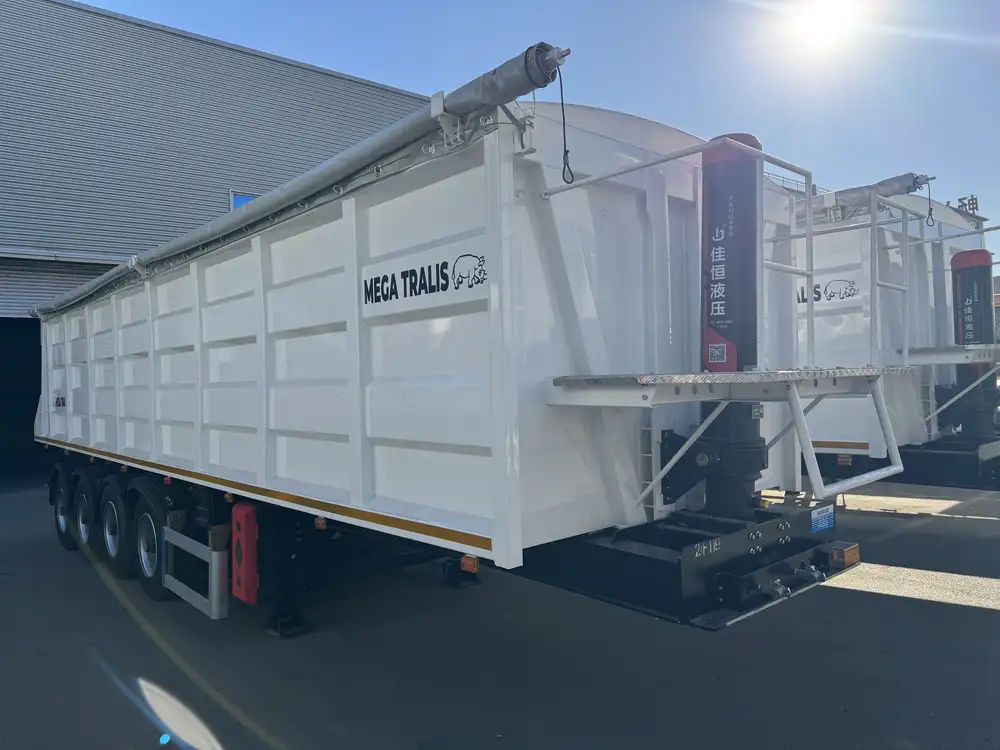
4. Protecting from Extreme Temperatures
Ensure tanks are insulated or equipped with temperature control systems to protect fuel integrity during extreme weather conditions.
5. Maintaining Ventilation Systems
Regularly check and maintain ventilation systems to ensure proper airflow and prevent fuel vapor accumulation.
Innovations in Diesel Tank Capacity Management
The transportation industry is continually evolving, with innovations aimed at improving diesel tank capacity management. Recent advancements include:

1. Smart Fuel Monitoring Systems
Integrating IoT-based fuel monitoring systems allows real-time tracking of fuel levels, consumption rates, and tank health, enabling proactive maintenance and efficient fuel usage.
2. Lightweight Materials
Utilizing advanced lightweight materials reduces overall tank weight, enhancing trailer payload capacity and fuel efficiency.
3. Modular Tank Designs
Modular tanks offer flexibility, allowing easy resizing or reconfiguration of tank capacity based on changing operational needs without major overhauls.

4. Eco-Friendly Solutions
Innovative designs incorporate eco-friendly materials and technologies that minimize environmental impact, aligning with sustainable transportation practices.
Safety Considerations for Trailer Diesel Tanks
Ensuring the safety of diesel tanks is crucial to protect personnel, assets, and the environment. Key safety considerations include:
1. Leak Detection Systems
Implementing advanced leak detection systems helps identify and address fuel leaks promptly, preventing accidents and environmental contamination.

2. Fire Suppression Systems
Equipping tanks with fire suppression mechanisms reduces the risk of fire hazards associated with diesel fuel exposure.
3. Proper Ventilation
Ensuring adequate ventilation prevents the accumulation of flammable vapors, mitigating explosion risks.
4. Secure Mounting
Properly securing diesel tanks to the trailer frame prevents movement during transit, reducing the likelihood of damage and spills.
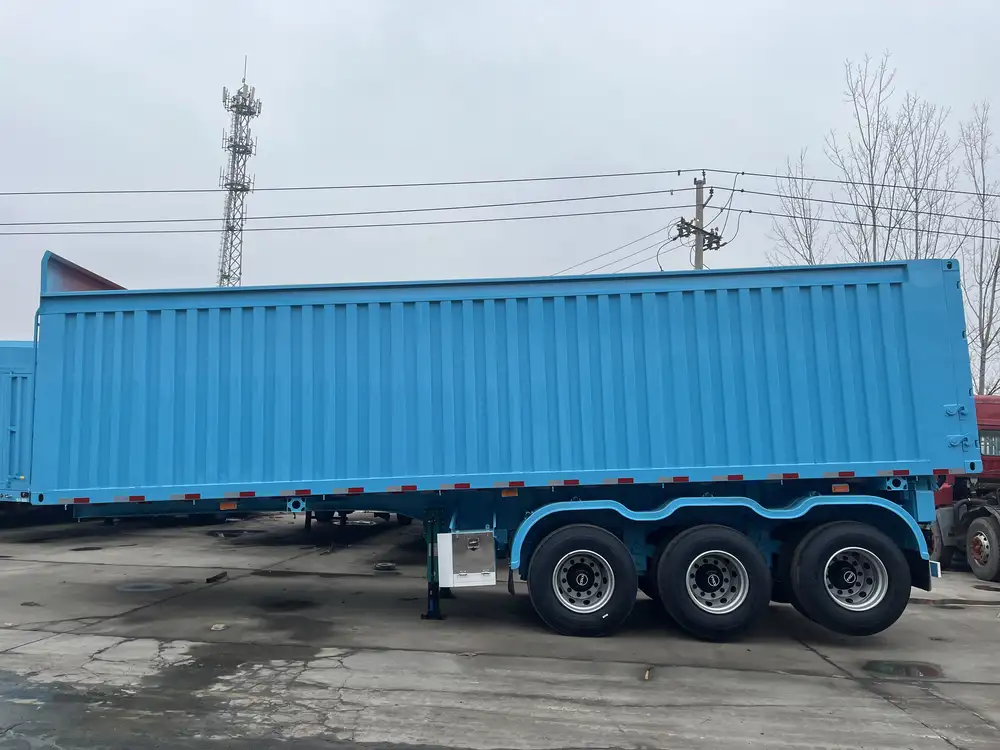
5. Compliance with Safety Standards
Adhering to industry safety standards and regulations ensures that diesel tanks meet the necessary safety requirements, promoting secure and reliable operations.
Choosing CarMax Trailer for Reliable Diesel Tank Solutions
When it comes to selecting trailers with optimal diesel tank capacities, CarMax Trailer stands out as a leader in the industry. Our commitment to quality, innovation, and customer satisfaction ensures that you receive trailers tailored to your specific needs.
Why Choose CarMax Trailer?
- Customized Solutions: We design diesel tanks that perfectly fit your operational requirements and trailer specifications.
- Quality Assurance: Our tanks are manufactured using high-grade materials and undergo rigorous testing to ensure durability and reliability.
- Innovative Design: We incorporate the latest technologies and design principles to enhance fuel efficiency and tank performance.
- Comprehensive Support: From initial consultation to after-sales service, our team provides unparalleled support to ensure your trailers operate optimally.
- Sustainability Focus: Our eco-friendly designs and practices contribute to sustainable transportation solutions, reducing your environmental footprint.
By choosing CarMax Trailer, you invest in a partner dedicated to enhancing your fleet’s efficiency, reliability, and overall performance through superior diesel tank solutions.
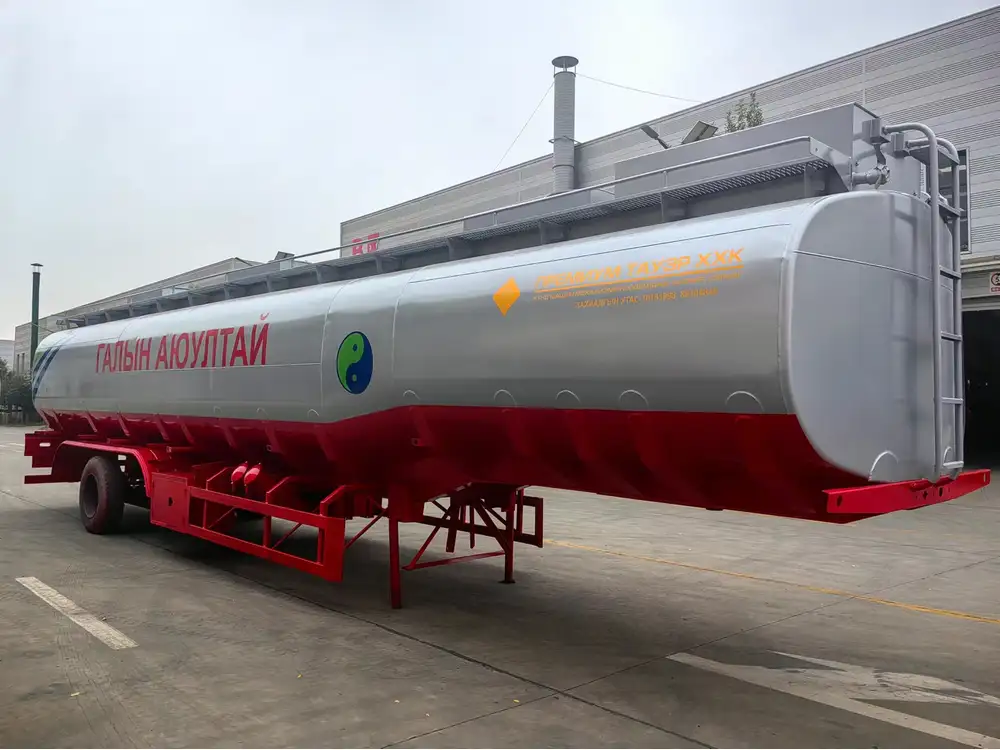
Enhancing Fleet Performance with the Right Diesel Tank Capacity
Optimizing diesel tank capacity is not merely a technical adjustment but a strategic decision that impacts the entire operation of your fleet. By partnering with experts like CarMax Vehicle, you gain access to tailored solutions that align with your business goals, ensuring that your trailers perform efficiently and reliably under diverse conditions.
Strategic Advantages
- Scalability: Our modular tank designs allow for easy scalability, accommodating fleet growth and changing operational demands.
- Cost Efficiency: Optimized tank capacities reduce fuel costs and maintenance expenses, contributing to overall cost savings.
- Operational Flexibility: With tailored diesel tank capacities, your fleet can adapt to various route requirements and cargo types with ease.
- Enhanced Safety and Compliance: Our adherence to safety standards and regulations ensures that your fleet operates within legal frameworks, avoiding fines and enhancing reputation.
Future Trends in Trailer Diesel Tank Capacity
The transportation industry is poised for significant advancements that will shape the future of diesel tank capacities in trailers. Emerging trends include:
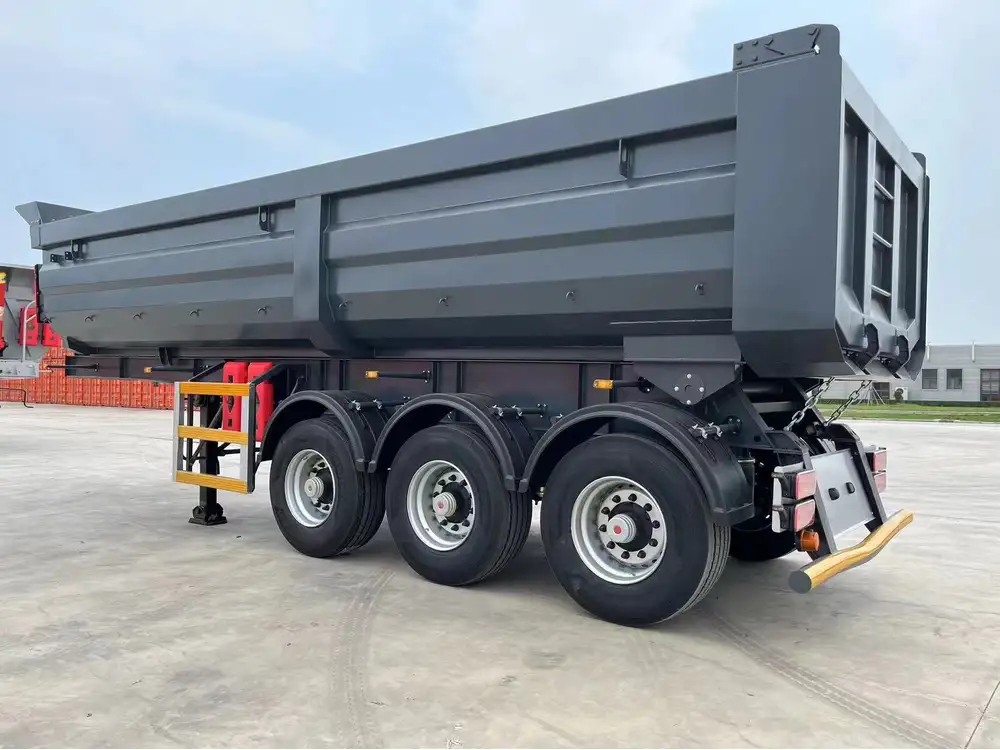
1. Electrification and Hybrid Systems
As the industry moves towards greener alternatives, the integration of hybrid systems that combine diesel engines with electric motors may influence diesel tank capacity requirements, balancing fuel usage with electric power.
2. Autonomous Fuel Management
Automation in fuel management, including autonomous refueling systems and predictive maintenance, will enhance the efficiency and reliability of diesel tank operations.
3. Advanced Materials and Manufacturing
Innovations in materials science will lead to lighter, more durable diesel tanks that maximize capacity while minimizing weight, improving overall trailer performance.

4. Enhanced Connectivity
Connected trailers equipped with advanced telematics will provide real-time data on fuel usage, tank health, and operational efficiency, enabling smarter fleet management decisions.
By staying abreast of these trends and incorporating them into our designs, CarMax Vehicle ensures that our diesel tank solutions remain at the forefront of industry advancements, providing our clients with future-ready transportation solutions.
Conclusion
Optimizing trailer diesel tank capacity is a critical factor in enhancing fleet efficiency, reducing operational costs, and ensuring reliable transportation services. At CarMax Vehicle, we are committed to delivering superior diesel tank solutions that cater to the unique needs of your fleet. By understanding the various factors influencing diesel tank capacity and leveraging our expertise in design and manufacturing, you can achieve unparalleled performance and sustainability in your transportation operations.
Frequently Asked Questions
1. How do I determine the appropriate diesel tank capacity for my trailer?
To determine the appropriate diesel tank capacity, assess your trailer’s fuel consumption rate, average route distances, refueling frequency, and incorporate a reserve capacity. This ensures you have sufficient fuel for your operations without overburdening the trailer with excess weight.
2. Can I upgrade my existing trailer’s diesel tank capacity?
Yes, upgrading your existing trailer’s diesel tank capacity is possible. It’s essential to consult with a professional manufacturer like CarMax Trailer to ensure that the new tank fits seamlessly with your trailer’s design and meets all safety and regulatory standards.
3. What are the maintenance requirements for trailer diesel tanks?
Regular maintenance includes routine inspections for leaks and corrosion, proper cleaning, monitoring fuel levels, protecting the tank from extreme temperatures, and maintaining ventilation systems. Adhering to these practices ensures the longevity and safety of your diesel tank.
4. How does diesel tank capacity affect my trailer’s payload?
Diesel fuel adds weight to the trailer, impacting the overall payload capacity. It’s important to balance tank capacity with payload requirements to avoid exceeding weight limits and ensure safe and efficient trailer operation.
5. What innovations are shaping the future of trailer diesel tank capacities?
Innovations such as smart fuel monitoring systems, lightweight materials, modular tank designs, and eco-friendly solutions are revolutionizing how diesel tank capacities are managed. These advancements enhance fuel efficiency, safety, and sustainability in trailer operations.



